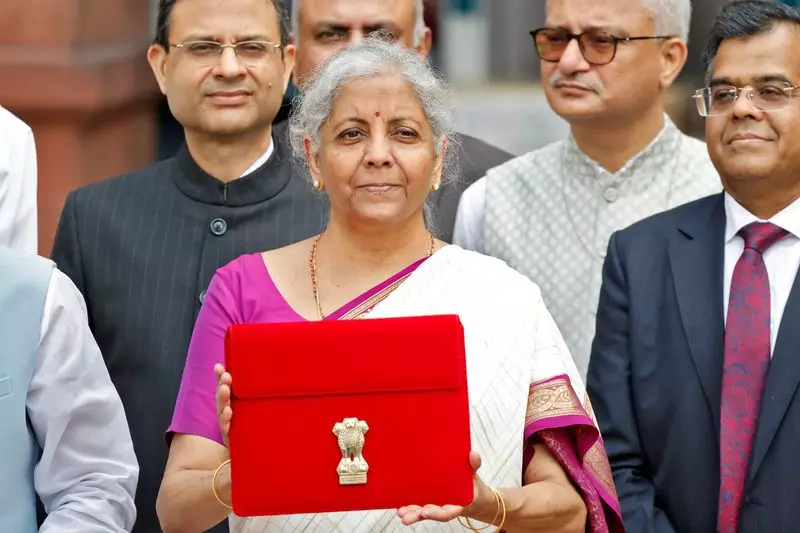India’s recently unveiled 2024-25 budget seems to be an attempt by the government to address the challenges posed by a weakened job market and rural distress, which were highlighted as key factors in the BJP’s recent election setback. The Finance Minister, Nirmala Sitharaman, has allocated a significant amount of funding towards job creation and rural development over the next five years. While this might seem like a positive step, one cannot help but question if these measures are adequate to address the underlying issues plaguing the economy.
The budget claims to strike a balance between supporting job creation and skilling, rural development, and infrastructure spending while also focusing on fiscal consolidation. However, there are concerns about the government’s ability to maintain this balance effectively. While the reduction of the fiscal deficit to 4.9% of GDP by 2024-25 seems ambitious, questions arise about the feasibility of achieving this target given the current economic climate and political uncertainties.
The budget outlines several measures aimed at boosting employment, such as incentives for companies in manufacturing, skill development programs, and cheaper loans for higher education. Additionally, long-term infrastructure projects are set to receive significant funding, with loans being extended to states for infrastructure expenditure. While these initiatives are promising, there is skepticism about their actual impact on the ground, particularly in terms of creating sustainable job opportunities and improving infrastructure.
One of the major changes introduced in the budget is the increase in taxes on equity investments and derivatives trading. While this move may have been intended to bring rationality to the market, it has led to a negative response from investors. The immediate decline in Indian shares and the rupee after the announcement reflects the uncertainty and lack of confidence in the market. It remains to be seen whether these tax changes will have their desired effect in the long run or if they will dampen investment sentiments further.
Overall, India’s 2024-25 budget presents a mixed bag of measures aimed at addressing key economic challenges facing the country. While the government’s intentions to boost job creation, rural development, and infrastructure are commendable, there are concerns about the effectiveness of these policies in achieving sustainable growth. The budget’s ambitious fiscal targets and tax changes also raise questions about their feasibility and impact on the market. Moving forward, it will be crucial for the government to monitor the implementation of these measures closely and make necessary adjustments to ensure that they yield positive outcomes for the economy and the people.

